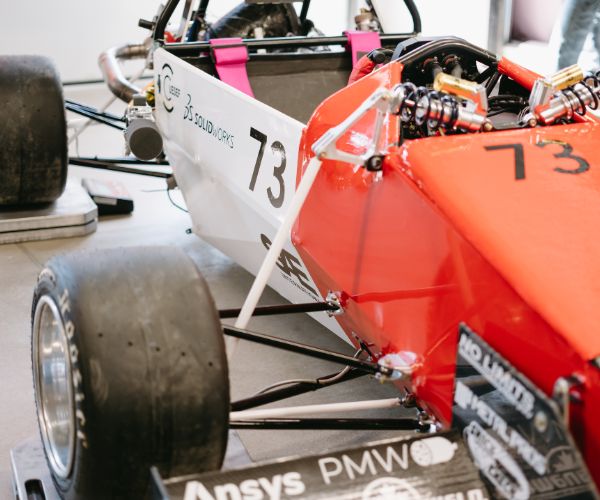Visit Carleton! Book your tour today.
Program Details
Virtually anything one builds that moves or converts energy has a mechanical component.
The Faculty of Engineering and Design’s Mechanical Engineering program in the Department of Mechanical and Aerospace Engineering emphasizes the development of analytical, computational and hands-on skills in design, dynamics, thermodynamics, heat transfer, fluid mechanics, solid mechanics, materials, control systems and robotics.
The Mechanical Engineering program is fully accredited by the Canadian Engineering Accreditation Board, allowing graduates to meet the educational requirements for registering as a professional engineer.
State-of-the-Art Facilities
Engineering students have access to state-of-the-art machine shops to help bring their projects to life. Our lab techs are passionate about supporting their students' learning endeavours.
Work Experience
A Co-op option is available. Co-op is the opportunity to get a head start on a career. Co-op work terms allow for the development of key employability skills, exploration of career options and graduation with tangible, workplace experience.

Get started in Carleton360 to receive tailored information on our programs, student services and community.

Career Outcomes
Explore your passions, refine new skills and discover the career that’s right for you.
Mechanical engineering is among the most versatile of all disciplines, giving students many career opportunities.

Sample Courses
ECOR 1044 - Mechatronics
2D truss analysis (method of joints/sections). Normal stress/strain and shear stress/strain. 2D frames and machines. Internal loads - normal, shear and moment at a point. Shear and moment diagrams.
MECH 4003 - Mechanical Systems Design
Design of mechanical systems: establishing design criteria, conceptual design, design economics, value analysis, synthesis and optimization. Mechanical elements/systems: gear and flexible drive systems, fluid power systems. These elements are utilized in group design projects.
Visit the Undergraduate Calendar to view a comprehensive list of course offerings for this program and discover the exciting things Carleton students are learning in the classroom!

